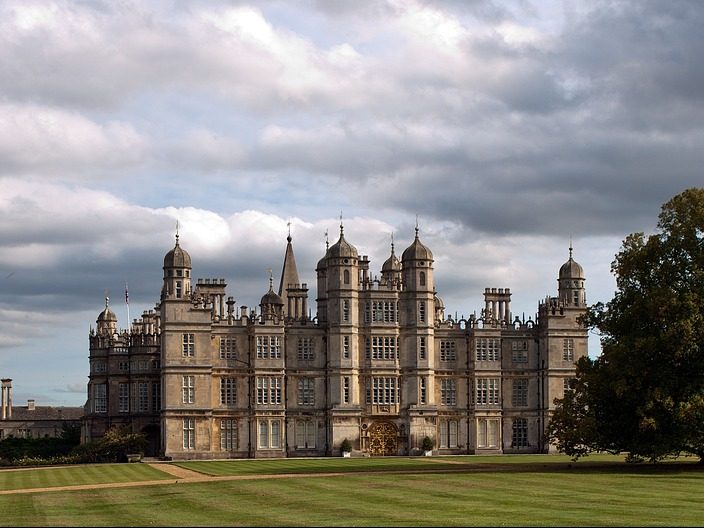Coming home for the Easter break, I had very little planned. That is apart from binge watching the entirety of Guy Ritchie’s recent TV series The Gentlemen as soon as I arrived, much to the delight of my family who haven’t seen me in months.
Following a couple of mediocre spy films, somewhat salvaged by his pleasantly surprising war movie The Covenant, Ritchie has returned to his forte – falling back in title and genre to his 2019 film The Gentlemen.
I fell in love with Ritchie, aptly regarded as the British Tarantino, when I watched his two first films, the British gangster themed Lock, Stock and Two Smoking Barrels and Snatch. The latter film I can practically quote line for line.
In the viewing culture of today, making audiences want to keep watching episode after episode is crucial. With its simple and approachable plot, Ritchie’s writing manages to do this perfectly.
The script focuses on the character of Edward Horniman, army officer and the son of the Duke of Halstead, played by Theo James. Following the Duke’s death, the Horniman title and estate are suddenly thrusted upon Edward.To add insult to injury, Edward discovers that underneath the veneer of nobility, his father had contracted out some of his estate to a marijuana criminal empire under the purview of Susie Glass, played by Kaya Scodelario.
Across the course of the eight episodes, ‘Eddie’, as he’s affectionately but perhaps more patronisingly referred to by Susie, has to protect his family, as well as deal with the UK’s crime network; the threat of death and destruction always at the foot of his (country manor) door.
Since its release in March, The Gentlemen has consistently been one of the top shows to watch, with a host of positive reviews, and averaging a 73% approval across Rotten Tomatoes, Metacritic and IMDb.
Unsurprisingly, what stands out amongst most of the notable reviews is its focus on Ritchie himself. Essentially, if you like Guy Ritchie, you’ll like The Gentlemen. I think this is pretty spot on. If I had no previous experience of Ritchie’s filmmaking, I’d be entertained by this series, but with my experience of his characters, themes and setting, I’m appreciative.
The characters in particular shone. While Theo James and Kaya Scodelario gave stellar lead performances,driving the plot forward and providing a focal point for the action, with Ritchie it is always the wider cast members that make his films. Vinnie Jones played the cool under fire groundskeeper Geoffrey Seacombe, putting in a performance reminiscent of his similarly calm and collected iconic roles in Snatch and Lock, Stock. Giancarlo Esposito, best known for playing Gus Fring in Breaking Bad, brought a similar style to this Ritchie series as Stanley Johnston, with his manipulative eloquence and refinement making him a great antagonist for Eddie and Susie.
Moreover, the obligatory comedy inherent in all of Ritchie’s best films was largely brought by ‘Freddie’ Horniman, played by Daniel Ings, whose often drug-inspired antics and erratic temperament bring about a host of dilemmas and ridiculous scenarios. Even Ray Winstone made an appearance as Susie’s drug kingpin father Bobby Glass, although I don’t think I can look at him the same way again after those Bet 365 adverts.
Most notably, The Gentlemen, and the film that preceded it, represent a shift in focus on Ritchie’s favourite environment to explore: British crime and gangsterism. While his first two films, both made back in 1998 and 2000, look at the underbelly of the British crime scene, featuring debt collection, bare knuckle boxing, gambling, diamond robbery and so on, The Gentlemen has a different approach. Within the show, Johnston states that ‘the British aristocracy were the original gangsters’, and the entire series is built around this argument.
The Gentlemen is based largely on hierarchy, connections, vast influence, and resources; Ritchie portrays a nobility embroiled in crime, a vicious cycle of power plays and underhand tactics that they themselves set off, defending their own stake in the British underworld against the emerging factions represented by characters like the Glasses. From cockney rhyming slang and working class culture, to upper class etiquette and manor life, Ritchie wonderfully expands on the criminal themes he has portrayed before.
Ritchie fans, such as myself, do not expect much from the writing; there is pretty much a prototype for those gangster films of his that I’d happily see repeated again and again, as long as I see some action and have a laugh. The Gentlemen does this to a tee, returning to the classic Ritchie script, but exploring new surrounding themes. I’m all for complex films and television, full to the brim with overlapping themes and rich, conflicted characters.
Having said that, I’m just as happy to watch fast-paced action, larger than life criminals and a touch of the fanciful. Season 2 couldn’t come fast enough.
